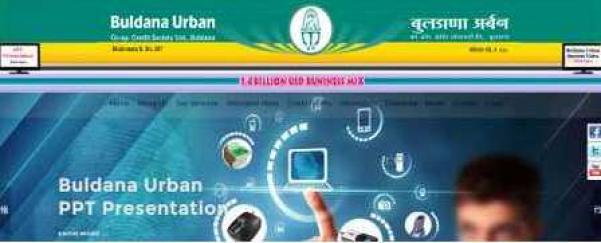When Banking Gets Conscionable
Alternate banking featuring Buldana Urban Credit Cooperative Society Limited, Maharashtra, India

(Image for reference only)
[Youtube grab of the song “Bugger the Bankers and politicians” by Austerity Allstars in 2012]

(Courtesy: thecoder.weebly.com)
It is common knowledge that birds such as pigeons flock as much on ground as in the sky. They are often fed by bystanders of daily life and common folk who comprise a community. A little known fact is that urban bird feeders, many a time, tend to harm the very species they intend to help. The mindless feeding on street corners and large avenue junctions make for good photographs but disturb the ecological balance in the neighbourhood. Pigeons on the other hand, tend not to think too much on the ecological effects of this system and continue to adapt to the changing times. Too much food at concentrated locations has made urban birds depend way too much on their feeders. The financial system that created too much private credit and money resulted in peoples’ over dependency on banks and has been often blamed for the economic recession that started in the previous decade. Furthermore, any future financial crash, as reported by Greg Hunter of the US Watch Dog, will empower bankers to take depositors money to come out of insolvency. So the depositors, who continue to have no idea about the way their money is invested, may find themselves like pigeons who someday may find the feeder absent at the banquet. Resulting in colossal mayhem!
The Youtube grab placed above is that of a Dylan-styled song written and sung by members of the Austerity Allstars during the height of the Occupy Wall Street movement in the USA when the proverbial 99% decided to wage a battle against the accumulation of wealth by the 1% in order to redefine the image of the ‘too big to fail’ financial institutions. A possible reason for this rebellion can be attributed to the mentioned lack of information and knowledge on the investments of depositors’ money by traditional or ‘rulebook’ banking.

Official Website of BUCCS : www.buldanaurban.coop
Credit cooperatives as financial institutions are usually compelled by their governing law and by-laws to restrict investments in speculative ventures and retain depositors’ money within its membership and community. These basic formulae have resulted in the growth of the B.U.C.C.S. or Buldana Credit Cooperative Society Limited from a 200/- USD worth financial institution with 72 individuals as members in 1986, to a large scale community institution with a business mix of over 1 Billion USD, over 400 branches and 700,000 individual members. The town of Buldana is in the region of Vidharbha which is one of the poorest regions of the country and where independent reports have indicated alarming levels of farmer suicides and poverty. The farmers grow cotton, pulses and grams and are caught in the cycle of money lenders and middlemen for their agrarian produce. What then is the billion dollar financial institution doing to outdo this suffering? As the Vidharba region finds many cooperatives engaged in the finance business, what then has B.U.C.C.S done to alleviate lives from economic travesty to social security, is what this article attempts to put forth.
To begin with, B.U.C.C.S’s founder and former chairperson, Mr. Radheyshyam Chandak states that “many cooperative banks in India follow the 'Political Banking' model that rests on the mercy of political masters to bail people and institutions out with the tax payers’ money. These financial institutions have hence become insolvent or, are on the verge of becoming so. However, B.U.C.C.S follows something that is a mixture of ‘banking by the rulebook’ followed by banking and serving ‘beyond the rule book’ and has termed this collective practice as 'Social Banking'”. He further adds that the 'Social Banking' practiced by B.U.C.C.S is not just a decorative phrase but the guiding principle for all its actions and a hallmark of 'Responsible Business'. The credit cooperative has directly affected the lives of the cotton farmers in the region by the investing in what world’s first micro scale spinning mill, aptly called ‘Microspin’, to help farmers convert cotton to fabric within a few kilometres of their farms. The produce of these spinning mills is exported and sold in premium markets. The idea of investing people’s money in people’s business for the mutual gain of the individual producer and the community that houses such a person is indeed the cornerstone of the ethical business practices followed by cooperative enterprises.

Microspin in action at Chikli village, roughly 1 Km from the nearest cotton farm
Extremely affordable clean drinking water in the remotest of villages in India is a dream that modern India’s founding fathers nurtured. The cooperative went a step ahead in guarantying its community a life with dignity when it invested in ‘Water ATMs’ that are machines that dispense drinkable water at 30 paisa a litre [0.4 cents] and provide much relief to the often drought ridden region. Building and investing in ‘warehouses & mills’ that store and process grains like soya for export have created a functional relationship between assets, farm credit and decent livelihood for the poor of the community. Let us see how:
Most rural families in India posses a very small amount of gold, that is earned as an asset through matrimony. Let’s imagine a family where this asset is the only source of their financial security and is kept intact until emergencies come knocking. One season of drought followed by bad harvests almost automatically lead families in debt with an extraordinary need for credit. Private money lenders are quick to provide credit at interest rates as high as 20 %, against the family gold. Due to the high interest and the continued dependency of Indian farmers on rains for good crops, ‘family gold’ never really makes a comeback!
No research is needed to imagine the frustrations of impoverished families in debt having lost their only social security and prayers to rain gods for hope. As one can imagine the local money lender changes moods from being compassionate at the time of taking gold, to the becoming the albatross around the necks of generations of such families. The ‘farm to families’ banking model designed by B.U.C.C.S changes the said equation to the extent of supporting the dynamics of ‘gold’ as an asset , ‘credit’ for farm input and maintenance, with another pillar of local coop economy in the form of affordable warehousing and accessible storage for farm produce. It is safe to say one bad season for crops does not really daunt the spirits of local farmers in the operational area of the credit cooperative. Members and other farmers here get the pledged gold should they need it back, by stocking their produce at members’ warehouses and paying minimal amounts to fumigate and cold-store the surplus during better harvests. Indian food granaries have ranked much below by any accepted standards while poverty leaves hundreds of millions hungry for a meal. In this context alone, cooperatives in Buldana do seem to have shown an inclusive way towards a grand solution.
Dr. Sukesh Zamwar executes the role of the Managing Director of the cooperative and says “I am an orthopaedic surgeon educated in Germany. It is easy for me to help those who already possess some wealth and encourage innovation in cities. It is a challenge however to pioneer ideas beneficial to sustain our age-old societies, (and) innovation in cooperative credit societies is an important step that that governments must widely support. The structure of cooperative legislation is conducive for people’s movements like the cooperative movement, to ably run as professionally managed innovative enterprises.”


“Swach Bharat” or ‘Clean India’ is a Government funded campaign/drive est.2014
The visual play in the bespectacled logo designed for the Clean India campaign strikes an immediate note with the teachings of M.K. (Mahatma) Gandhi, the pioneering leader of the Indian independence movement until his death in 1948. “Be the change you want to see in the world” is one of his calls that Buldana Urban Credit Cooperative Society seems to have taken seriously in the context of Swach Bharat. In a post written by Balu Iyer[1] , he recounts how an ex-army sergeant led team developed indigenously designed fogging machine to negotiate the uneven character of inland roads. Moreover the SMS system where residents send the coop a ‘text’ about the area’s rubbish to be collected is innovation beyond mechanics, especially in the interiors of India and can be dubbed as ‘keeping pace with time’. The coop engages with the larger community through its citizens and enters into mainstream business like highway toll road development to compensate the lack of mainstream travel connectivity, building of water reservoirs to secure needs during testing times, building and managing schools, hostels, training centres and accommodation at places of religious importance, all for credit cooperative members is money well spent indeed!

Construction of water reservoir in 2013 Photograph of the reservoir in 2014
The financial reports of B.U.C.C.S are a testament to the same. B.U.C.C.S has invested in mid scale bio gas plants, solar powered sprinklers (handheld and stationary) and local innovations in India to aid the agro-industry, including managing waste. Prototypes of all such equipment are for display and use of youth at the Sakahar Vidya Mandir or the Cooperative School that provides for quality education with latest technology to youth associated with members and staff from all branches of the credit cooperative. The cooperative has also started artificial limb centres to aid the differently able. One must never forget that the access to decent ‘Life’ (with dignity) as imagined by forefathers of India’s constitution in guarantying fundamental rights to citizens, is happening now in a ‘remote’ part of India’ that is not easy to access! And remember that banks can innovate only if stakeholders are directly affected by the bank’s fate.
Workers slip given on daily wage ATM cards by the credit coop
The song Buggers the bankers by Austerity Allstars narrates the global banking system in the following words “... it’s the same old story ... the rich reign supreme while the poor can but dream....bugger the bankers and politicians, bugger the bureaucrats , bugger the buggers who make up the rules...” The song gave a strange sense of belongingness to the protestors on Wall Street, owing to their homogeneity and their common call for conscionable banking. B.U.C.C.S’s main business covers a variety of loan portfolios including those meant for social activities including wedding loans and dignified funeral services offered only the banking staff and members to help them keep climbing the social ladder. In 2013, Michigan University conducted a development research in Maharashtra, Madhya Pradesh and Andhra Pradesh in India. It was completed in six months and was conducted among twenty-five thousand respondents within various target areas. The research revealed that the per capita income of the members of the Buldana Urban Credit Co-operative is about two times the per capita income of whole India. This is further verified for the purpose of this article by Mr. Jhadav, Manager of the Buldana Residency, a hotel built to host urban guests and international cooperative delegations when he confidently says, “Buldana is 20 years ahead in terms of wholesome development than its neighbours because its cooperative invests its citizen’s money back in the community” reflecting a very different kind of faith in banking than the one propagated by the Austerity song that continues to say “...if you’re one of them bankers, then bugger you too!”

Picture for reference only Courtesy: http://www.bbc.com/news/education-15820786
[1] Regional Director, ICA Asia and Pacific



